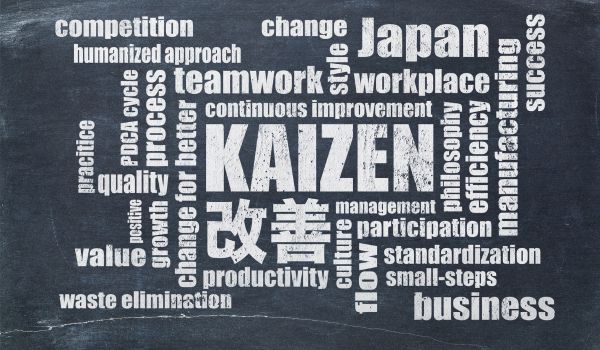In the realm of project management, Kaizen methodology stands out as a pivotal approach that fosters continuous improvement and efficiency. Rooted in Japanese management philosophy, Kaizen emphasizes small, incremental changes that accumulate to create significant improvements over time. This article delves into the intricacies of Kaizen methodology and its profound impact on project management, illustrating how it can transform organizational practices and outcomes.
Understanding Kaizen Methodology
Origins and Philosophy
Kaizen, a Japanese term meaning “change for better,” has its origins in the post-World War II era, notably within Japanese manufacturing industries. The methodology is underpinned by a few core principles:
- Continuous Improvement: Unlike drastic, sweeping changes, Kaizen advocates for continuous, small-scale improvements.
- Employee Involvement: It encourages participation and suggestions from all employees, fostering a culture of collective responsibility and innovation.
- Elimination of Waste: Kaizen seeks to identify and eliminate any forms of waste (known as “muda”) within processes.
Key Principles of Kaizen
- Incremental Changes: The focus is on gradual, step-by-step improvements rather than major overhauls.
- Standardization: Establishing standard processes to maintain consistency and quality.
- Employee Empowerment: Encouraging workers at all levels to contribute ideas and take ownership of their work.
- Quality Control: Implementing rigorous quality control measures to ensure that improvements lead to tangible benefits.
Role of Kaizen in Project Management
Enhanced Efficiency and Productivity
One of the primary benefits of Kaizen in project management is the enhancement of efficiency and productivity. By continuously refining processes and eliminating inefficiencies, teams can complete projects more quickly and with fewer resources. This approach not only boosts productivity but also reduces costs, making projects more financially viable.
Improved Quality and Consistency
Kaizen’s emphasis on standardization and quality control leads to higher quality outputs. In project management, this translates to more reliable and consistent results. Teams that adhere to Kaizen principles are better equipped to deliver projects that meet or exceed stakeholder expectations, thereby enhancing client satisfaction and trust.
Fostering a Collaborative Culture
Kaizen thrives on employee involvement and teamwork. In a project management context, this means fostering a culture where team members feel valued and empowered to contribute. Such a collaborative environment encourages the sharing of ideas and solutions, leading to innovative approaches and improved project outcomes.
Proactive Problem Solving
Kaizen encourages proactive problem-solving by focusing on root cause analysis and preventive measures. Project managers can identify potential issues early and implement solutions before they escalate, thus minimizing disruptions and ensuring smoother project execution.
Implementing Kaizen in Project Management
Step-by-Step Approach
- Assessment: Begin with a thorough assessment of current processes to identify areas of improvement.
- Planning: Develop a detailed plan for implementing Kaizen principles, including setting measurable goals and timelines.
- Execution: Implement changes in small, manageable increments, involving team members at every stage.
- Review and Adjust: Continuously monitor the effects of changes, gather feedback, and make adjustments as needed.
Tools and Techniques
Several tools and techniques can facilitate the implementation of Kaizen in project management:
- PDCA Cycle (Plan-Do-Check-Act): A fundamental tool for continuous improvement that involves planning changes, implementing them, checking results, and acting on findings.
- 5S (Sort, Set in order, Shine, Standardize, Sustain): A workplace organization method that enhances efficiency and safety.
- Value Stream Mapping: A visual tool for analyzing and optimizing workflows.
- Gemba Walks: Managers go to the “Gemba” (the actual place where work is done) to observe processes and identify improvement opportunities.
- Challenges and Solutions: Implementing Kaizen in project management may encounter several challenges, including resistance to change, limited resources, and sustaining long-term commitment. To overcome these challenges, project managers can:
- Engage Leadership: Secure support from top management to champion and sustain Kaizen initiatives.
- Provide Training: Equip team members with the necessary skills and knowledge through continuous training.
Celebrate Successes: Recognize and celebrate small wins to motivate the team and build momentum.
Case Studies: Kaizen in Action
Manufacturing Industry
In the manufacturing industry, companies like Toyota have successfully implemented Kaizen to streamline production processes, reduce waste, and improve product quality. By involving employees at all levels, Toyota has created a culture of continuous improvement that drives innovation and operational excellence.
Healthcare Sector
Hospitals and healthcare providers have adopted Kaizen to enhance patient care, reduce wait times, and optimize resource utilization. For example, Virginia Mason Medical Center in Seattle implemented Kaizen to improve patient safety and care quality, resulting in significant reductions in medical errors and operational costs.
Software Development
In the software development field, agile methodologies often incorporate Kaizen principles to enhance team collaboration and product quality. Companies like Google and Spotify use Kaizen to continuously refine their development processes, leading to faster delivery times and higher-quality software products.
Kaizen methodology, with its focus on continuous improvement, employee involvement, and waste elimination, plays a crucial role in project management. By enhancing efficiency, improving quality, fostering collaboration, and promoting proactive problem-solving, Kaizen helps project teams achieve better outcomes and deliver greater value to stakeholders. Embracing Kaizen can transform organizational practices, leading to sustained success and competitiveness in an ever-evolving business landscape.




